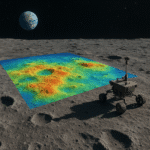Impressive agriculture is a field that continues to evolve, showcasing remarkable innovations and sustainable practices that are transforming the way we produce food. As the global population grows and environmental challenges intensify, the agricultural sector is under increasing pressure to produce more with less. This article delves into the fascinating world of impressive agriculture, exploring the cutting-edge technologies and sustainable practices that are shaping the future of farming.
Technological Innovations in Agriculture
The agricultural industry has always been a cornerstone of human civilization, but recent technological advancements have propelled it into a new era of efficiency and productivity. One of the most significant innovations in this field is precision agriculture, which leverages data and technology to optimize farming practices. By using GPS technology, sensors, and drones, farmers can monitor crop health, soil conditions, and weather patterns with unprecedented accuracy. This data-driven approach allows for precise application of water, fertilizers, and pesticides, reducing waste and environmental impact while maximizing yields.
Another groundbreaking development is the use of robotics and automation in agriculture. Autonomous tractors and harvesters are becoming increasingly common, reducing the need for manual labor and increasing efficiency. These machines can work around the clock, performing tasks such as planting, weeding, and harvesting with minimal human intervention. Additionally, robotic systems equipped with artificial intelligence are being developed to identify and remove weeds, further reducing the reliance on chemical herbicides.
Biotechnology is also playing a crucial role in impressive agriculture. Genetically modified organisms (GMOs) have been engineered to resist pests, tolerate harsh environmental conditions, and improve nutritional content. These advancements have the potential to significantly increase food production and security, particularly in regions facing climate change challenges. Furthermore, the development of lab-grown meat and plant-based protein alternatives is revolutionizing the food industry, offering sustainable options that reduce the environmental impact of traditional livestock farming.
Sustainable Practices and Environmental Impact
While technological innovations are driving impressive agriculture forward, sustainable practices are equally important in ensuring the long-term viability of food production. One such practice is regenerative agriculture, which focuses on restoring soil health and biodiversity. By implementing techniques such as cover cropping, crop rotation, and reduced tillage, farmers can enhance soil fertility, sequester carbon, and improve water retention. These practices not only increase resilience to climate change but also contribute to the overall health of ecosystems.
Agroforestry is another sustainable approach gaining traction in the agricultural sector. This practice involves integrating trees and shrubs into crop and livestock systems, creating a more diverse and resilient agricultural landscape. Agroforestry can provide numerous benefits, including improved soil health, increased biodiversity, and enhanced carbon sequestration. Additionally, it offers farmers alternative sources of income through the production of timber, fruits, and nuts.
Water management is a critical aspect of sustainable agriculture, particularly in regions facing water scarcity. Innovative irrigation techniques, such as drip irrigation and rainwater harvesting, are being employed to optimize water use and reduce waste. These methods ensure that crops receive the necessary moisture while minimizing evaporation and runoff. Furthermore, the adoption of drought-resistant crop varieties can help farmers maintain productivity in the face of changing climate conditions.
In conclusion, impressive agriculture is a dynamic and rapidly evolving field that holds the key to addressing some of the most pressing challenges of our time. Through the integration of cutting-edge technologies and sustainable practices, the agricultural sector is poised to meet the growing demand for food while minimizing its environmental footprint. As we continue to innovate and adapt, the future of farming looks promising, offering hope for a more sustainable and food-secure world.










